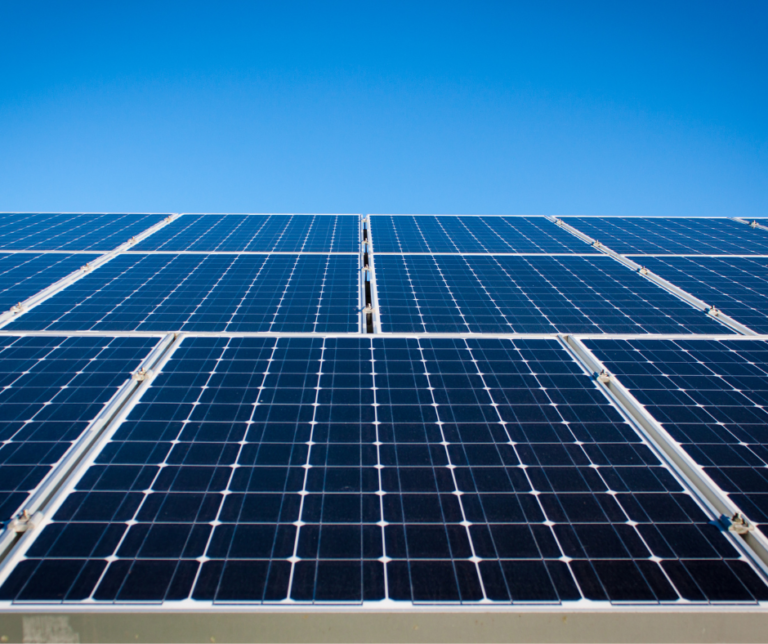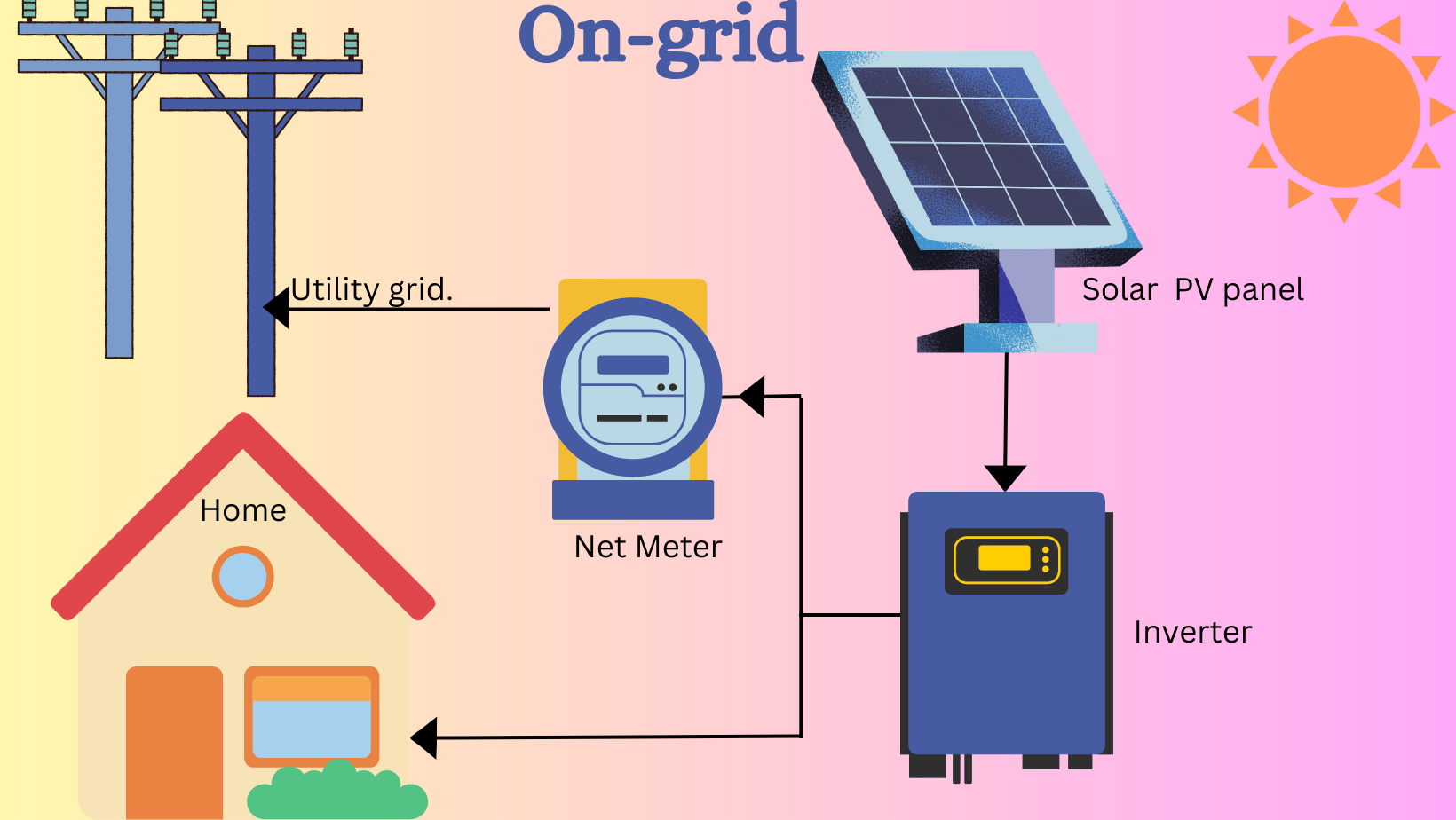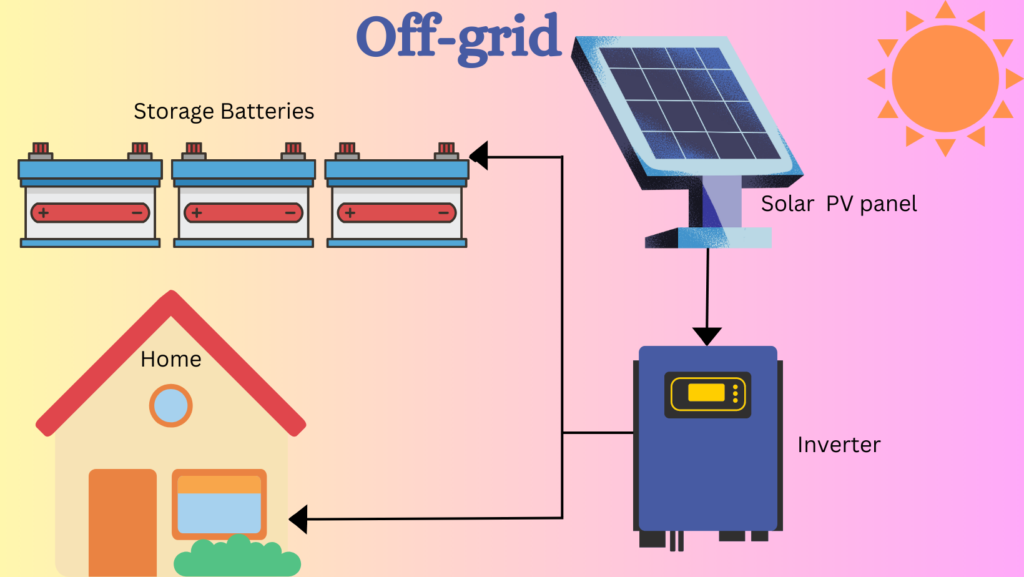On-grid or Off-grid Solar? Which is better for me?
Published on 12th June, 2023

Solar energy development has made great strides in the last decade and is now more easily accessible, it has incredible potential for all customer segments in the coming years.
Solar prices have continued to fall for the last decade due to the development of PV technology and the increasing demand for clean energy sources. As prices continue to fall, solar energy is increasingly becoming an economical choice for many homeowners and businesses.
So, when installing a new solar energy system, there are a lot of questions and decisions to make.
We want to help you make the right decision and to make the process easy.
The difference between an on-grid and off-grid system is simple.
As the names suggest, an on-grid system is connected to the utility(electricity) grid, and an off-grid system is independent, or not connected to the grid.
The whole process of solar installation is dependent on the choice the customer makes.
What is On-Grid Solar System?
The on-grid solar systems, also known as grid-tied systems are connected to the utility company’s grid, which provides electricity to everyone.
The On-grid system is very popular and widely installed because even if sometimes your installed solar system does not generate enough units, you can simply use electricity from the electricity grid.
Additionally, if some excess electricity is produced, by the system, it can be sold back to the utility company.
This is known as net metering.
Components of an On-grid System.
Solar PV modules, Inverter, and Net Meter.
Pros:
1. Easy to install and maintain
2. It is economical as you don’t have to buy an expensive battery backup system to store excess energy.
3. The excess electricity produced, can be sold to the grid.
4. If the customer needs any excess power, it is drawn from the grid.
Cons:
- The system cannot store excess energy produced.
- The system does not work during a power outage.

What is an Off-Grid System?
The off-grid solar system is completely independent and is equipped with battery backup. In an off-grid system, you get to choose to charge the battery or power the house, from the electricity generated from solar panels. An off-grid system is designed to generate excess electricity during the day which is stored in the batteries. The energy stored can then be used during the night or when it is cloudy.
The main advantage of an off-grid solar system is that the user is not dependent on grid energy, which means a power failure or an outage would not affect the user in any way. They are often helpful in remote locations where it is not feasible to connect to the grid.
There are times when panels will generate excess electricity than what is required to charge the batteries and power the home, the surplus electricity is wasted.
Components of an Off-grid System.
Solar PV modules, Inverter, and batteries.
Pros:
- The system is completely self-sufficient.
- The system is not affected by a power outage.
- Electricity can be stored in batteries.
Cons:
- The additional cost of batteries means that off-grid systems are more expensive than on-grid systems.
- The cost of maintaining and potentially replacing batteries over time.
- If enough electricity is not generated, the system becomes useless.

So, On-grid or Off-grid? Which is better for you?
In most cases, an on-grid system is the most cost-efficient and reliable. Residential houses benefit from an on-grid system, as it is hassle-free and customers are protected from the ever-increasing electricity cost.
If you want a solar system in an area where the power supply isn’t reliable, or you are too far to connect to the local electricity supply then an off-grid solar system is a good option.
We provide installations for both ON and OFF-grid solar energy systems customized as per customer needs.
No matter which option you choose, solar energy will reduce your carbon footprint, and help reduce your electricity costs which is a big win. You will be taking a major step towards sustainability and helping our environment.
